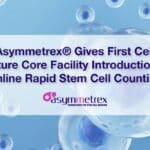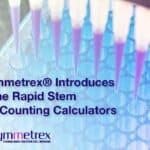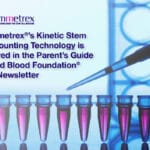Although more investment by major pharmaceutical companies would accelerate progress in regenerative medicine, in recent years, regenerative medicine initiatives have experienced a tepid reception by Big Pharma. In an editorial article appearing today in Pharmaceutical Manufacturing, James Sherley, founder and director of stem cell biotechnology tools company Asymmetrex, offers an explanation and a solution for Pharma’s hesitancy to invest more in regenerative medicine development.
Today, in the March issue of Pharmaceutical Manufacturing, an editorial article written by Dr. James L. Sherley, M.D., Ph.D. addresses the question of why major Pharma companies have largely steered clear of projects to develop regenerative medicines. Sherley, who is the founder and director of stem cell biotechnology tools company Asymmetrex, acknowledges the most recent investments of primarily smaller biopharmaceutical companies in CAR-T and other immune cell therapies. However, he maintains that more general involvement of major pharma companies in the development of regenerative medicine therapies leaves much to be desired.
Sherley attributes the reticence of Big Pharma to wade into regenerative medicine fully to the new discipline’s ongoing failure to achieve two essential production capabilities. The first is a means to manufacture the therapeutic factor, adult tissue stem cells; and the second is a means to quantify them. These fundamental capabilities are the foundation for the pharmaceutical industry’s successful development of all previously approved and marketed pharmaceuticals and biopharmaceuticals. Sherley argues that until technologies are widely available that provide these crucial capabilities, major pharma companies will continue to sit on the sidelines of regenerative medicine development. CAR-T cell therapies, which can be quantified with highly specific immune cell biomarkers and are increasing their manufacturing capabilities steadily, are noted as a validation of this attraction to Big Pharma.
Leading a stem cell biotechnology tools company, Asymmetrex, Sherley did not contribute his article idly. Asymmetrex was founded with a business focus on manufacturing expanded, natural adult tissue stem cells. Though this effort is currently not the major focus of the company, it holds several patents for methods for selective expansion of therapeutic adult tissue stem cells that are relevant to Pharma’s first technology requirement for becoming more engaged in regenerative medicine development.
Asymmetrex’s current main business development focus is the second Pharma requirement. The company markets a contract service for specifically counting adult tissue stem cells. The counting technology has wide applications for regenerative medicine. Some examples are counting tissue stem cells in experimental studies; determining the dose of tissue stem cells in treatment samples; early, less expensive detection of stem cell-toxic drugs, which cause chronic organ failure; discovery of stem cell-activating drugs, which could accelerate wound healing; and monitoring and optimizing the production of tissue stem cells during expansion and manufacturing trials. Moreover, the last application example is synergistic with Pharma’s need for effective manufacturing capability.
Today’s article relates how two major previous developments in stem cell medicine misled Pharma by appearing to have both required capabilities, but failing in a third fundamental for any good medicine, which is safety and therapeutic efficacy. Embryonic stem cells could be quantified and produced, but their tumor-forming properties made them unsafe for introduction into the body. Induced pluripotent stem cells had similar safety prohibitions. However, because they posed no moral or ethical concerns like embryonic stem cells, induced pluripotent stem cells, have undergone significant commercial development. Yet, in the final analysis, also like embryonic stem cells, their biological limitations preclude efficacy as long-term tissue-renewing cells in the body.
Sherley’s solution for all of these complications is for Big Pharma to take a closer look at the tissue stem cell production and quantification technologies available from Asymmetrex. Both of the two essential development capabilities are in practice; and they were developed both for and with natural, safe and efficacious, adult tissue stem cells.
Asymmetrex, LLC is a Massachusetts life sciences company with a focus on developing technologies to advance stem cell medicine. Asymmetrex’s founder and director, James L. Sherley, M.D., Ph.D. is an internationally recognized expert on the unique properties of adult tissue stem cells. The company’s patent portfolio contains biotechnologies that solve the two main technical problems – production and quantification – that have stood in the way of successful commercialization of human adult tissue stem cells for regenerative medicine and drug development. In addition, the portfolio includes novel technologies for isolating cancer stem cells and producing induced pluripotent stem cells for disease research purposes. Asymmetrex markets the first technology for determination of the dose and quality of tissue stem cell preparations (the “AlphaSTEM Test™”) for use in stem cell transplantation therapies and pre-clinical drug evaluations.







Leave a Reply